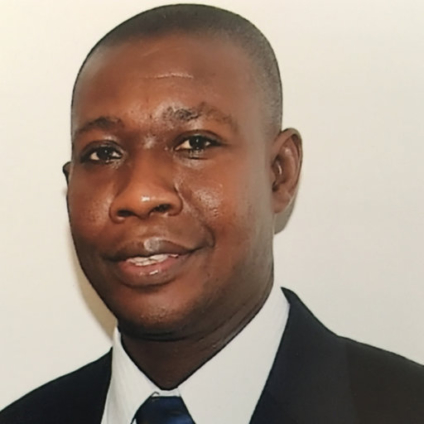The Head of the Economics Department of the University of Ghana, Professor William Baah-Boateng, says the interest rates policy hikes are not solely responsible for the high lending rates at commercial banks.
According to him, the rapid cedi depreciation and its attendant inflation are the drivers of lending rates currently.
He explained that despite the hikes in policy rates, commercial banks have been pegging their lending rates against the inflation rate to ensure that the money they lend out does not go to waste.
“So when inflation is going up, commercial bank will not just look at the policy rate, but will look at inflation. And, therefore, we don’t have to look at policy rate as the main thing that is going to drive lending rate, it is the rate of inflation currently that is going to drive lending rate,” he said on JoyNews’ PM Express Business Edition.
“And therefore, the Bank of Ghana looks at the policy rate and also looks at what is happening in the global market - because interest rate in US, interest rates in other countries are going up because they are also fighting their inflation and then they look at where the exchange rate depreciation is coming from,” he added.
His comment comes on the back of the Bank of Ghana increasing the policy rate by 300 basis points to 22%, after an Emergency Monetary Policy Committee meeting on August 17th, 2022.
The move is part of measures to address the risks to the inflation outlook.
According to Professor Baah-Boateng, the Bank of Ghana could have even gone higher than the 300 basis points, “but I think the optimum as it is, is 300 basis points.”
He explained that raising the policy rate was crucial to shifting focus of investment locally thus ensuring investors who would have otherwise transferred their funds abroad amidst the current economic crisis will invest it in the country instead.
“Now if you look at the balance of payment account, you’ll realize that the major problem is coming from the capital account because foreign investors holding our domestic bonds are flying out their investment. So what can be done to tame that kind of demand for foreign currency?
“So if you raise the policy rate, then you’re trying to change or shift the focus of investment locally. So those who thought they had to send their money back because they’re not getting the best returns will then think twice.
“So if demand is able to be tamed and the exchange rate does not go up but it remains as it is then it means that you have given the first dose to the patient, then you can then think about what best can be done to also look at the other side. So for me the Bank of Ghana could have even gone higher than the 300 basic points but I think the optimum as it is, is 300 basis points,” he explained.
Latest Stories
-
Attorney General’s NSA update serves public interest – Franklin Cudjoe
15 minutes -
Postponing Fuel Levy a pragmatic move amid global oil uncertainty – IMANI boss
21 minutes -
YEA deal expired, not terminated – Zoomlion
38 minutes -
VRA cautions against farming, building within 280ft Volta Lake contour
43 minutes -
Ghana, China sign MoU to build NEV Assembly Plant
49 minutes -
Ghana Chamber of Mines engages journalists in Takoradi
53 minutes -
Fatherhood is divine – Offinso North MP
1 hour -
ALX convenes ecosystem partners to back government’s 1 Million Coders initiative
1 hour -
Horticulture is key to Ghana’s inclusive growth – Fidelity Bank MD
1 hour -
Israel–Iran War: How exposed is Ghana?
1 hour -
Ghana accelerates efforts to boost Intra-African Trade
2 hours -
Attorney General Ayine won’t trade law for pressure – Deputy AG defends integrity of prosecutions
2 hours -
Attorney General Ayine won’t prosecute without evidence – Deputy AG Srem Sai assures
3 hours -
Mahama to build Trauma and Emergency Centre in Walewale, leaves Bawumia-started project in limbo
3 hours -
Withdraw Dumsor Levy now, postponement isn’t enough – Minority Leader
3 hours

